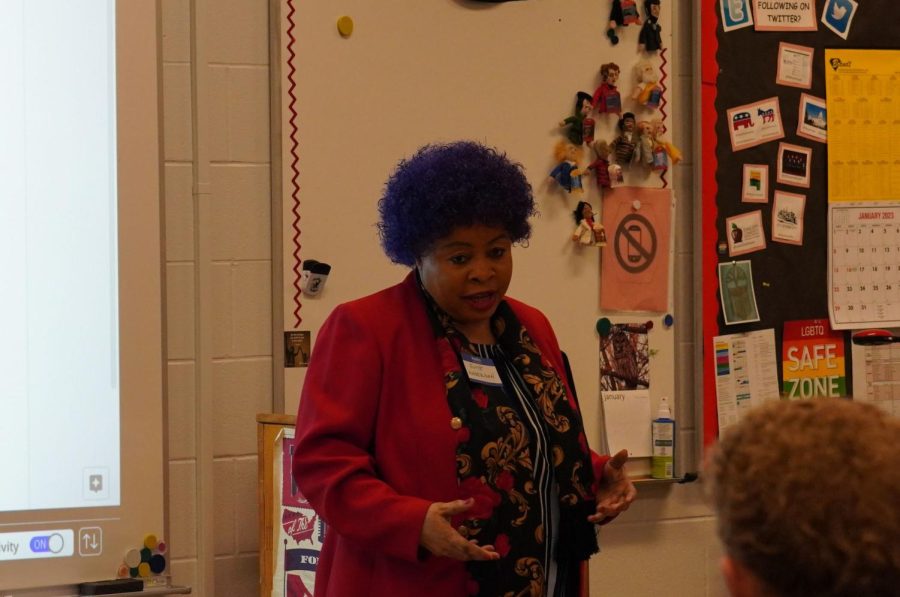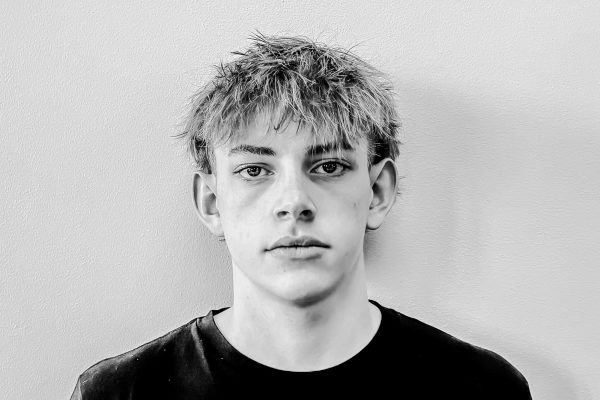City High Paraeducators Tell Stories of Living Under Authoritarian Rule
Elite Anderson presents to Watson’s second period government class.
January 20, 2023
Elite Anderson starts her school day differently in the Republic of Congo. Before her class could begin lessons, they must sing. She opens her mouth to sing to a poster of her country’s new leader, Mobutu Sese Soko, as a way of pledging her allegiance.
Carrie Watson City High government teacher holds a panel on authoritarian regimes across the world with three speakers sharing their experiences. The first speaker is Elite Anderson from the Congo, the second was Mauro Heck from Brazil, and finally, Petra Mujica from Venezuela, who concluded the presentation. Elite and Petra are both City High paraeducators.
Elite tells her audience that the year she was born the Congo government changed rules, and the authoritarian regime began under Mobutu Sese Soko. All Elite knew was a lack of democracy, in fact, Elite was not so much as taught about democracy in school.
“The first thing he did when he came to power was change the constitution to favor himself, meaning only one political party and everybody, like it or not, had to be a member of his political party. Mobutu then changed everyone’s name, according to him, previous names like Mark, Joseph, or Eric are not African names, they are colonial names,” Elite said.
Mauro from Brazil was a senior in high school when he was required to go on a parade float. He made the decision to not attend and was almost kicked out of his school and unable to graduate high school.
“When I was five years old, the military took over Brazil. [The] democratically elected government was overthrown. I was five years old so it took a while to register, but when I became a teen I really began noticing the restrictions. Press was severely curtailed and you really had to watch what you said in and outside of school,” Mauro said.
Petra was born in Venezuela under a military regime but moved to the United States for 5 years. Within that time, her husband earned his Ph.D. Petra and her husband returned to Venezuela because they felt it was a safer time to do so, but returned home after the fall of a democratic regime. Petra has now lived in the United States for 15 years.
“They were able to make Venezuela democratic people for a while and things were going wonderful in the country. Again people began to be upset saying ‘The government is taking our money, it is the people’s money, and no one person or three or four people should have it.’ After that, many people were killed in one night,” Petra said.
A continuity every speaker described was the extreme importance of voting in elections, the appreciation of democracy, and the ability for political and social change to take place.
“It is very important to vote. Really take the issue seriously and do your part, go out, and vote. You may think voting is just one drop in that huge bucket but truly it is a small contribution to express yourself,” Mauro said.


































